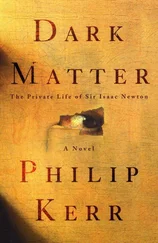Philip Kerr - A Man Without Breath
Здесь есть возможность читать онлайн «Philip Kerr - A Man Without Breath» весь текст электронной книги совершенно бесплатно (целиком полную версию без сокращений). В некоторых случаях можно слушать аудио, скачать через торрент в формате fb2 и присутствует краткое содержание. Год выпуска: 2013, Издательство: Quercus, Жанр: Триллер, на английском языке. Описание произведения, (предисловие) а так же отзывы посетителей доступны на портале библиотеки ЛибКат.
- Название:A Man Without Breath
- Автор:
- Издательство:Quercus
- Жанр:
- Год:2013
- ISBN:нет данных
- Рейтинг книги:4 / 5. Голосов: 1
-
Избранное:Добавить в избранное
- Отзывы:
-
Ваша оценка:
- 80
- 1
- 2
- 3
- 4
- 5
A Man Without Breath: краткое содержание, описание и аннотация
Предлагаем к чтению аннотацию, описание, краткое содержание или предисловие (зависит от того, что написал сам автор книги «A Man Without Breath»). Если вы не нашли необходимую информацию о книге — напишите в комментариях, мы постараемся отыскать её.
A Man Without Breath — читать онлайн бесплатно полную книгу (весь текст) целиком
Ниже представлен текст книги, разбитый по страницам. Система сохранения места последней прочитанной страницы, позволяет с удобством читать онлайн бесплатно книгу «A Man Without Breath», без необходимости каждый раз заново искать на чём Вы остановились. Поставьте закладку, и сможете в любой момент перейти на страницу, на которой закончили чтение.
Интервал:
Закладка:
I looked away out of something like decency and glanced over the books that were piled next to his chair. They all looked like they’d been read, but I wondered if just one of them contained a single truth like the one I guessed he knew as well as I did: that being dead is probably the worst thing that can happen to you – after this nothing matters very much, especially not what other people say about you. As long as you can draw breath you’ve got a chance of turning around whatever nastiness you’ve been involved in; at least that was what I was praying when I prayed at all.
Batov wiped his moustache with the back of his hand. ‘I haven’t drunk vodka like this in a long time,’ he said. ‘Frankly I haven’t been able to afford it. Even before you Germans turned up, things were very hard. And they’re not about to get easier. For me, at any rate.’
‘That’s why we’re drinking, isn’t it? To forget about shit like that. Because life is shit but the alternative is always worse. At least that’s the way it looks to me. I’m in a dark place but the other side of the curtain looks even darker to me. And it frightens me.’
‘You sound like a Russian now. It must be the vodka, Captain Gunther. What you say is quite correct, and that’s why any Russian drinks. We pretend to live because dying is much more reality than we can cope with. Which reminds me of a story – about drinking yorsh , as a matter of fact. That stuff is lethal. Even to those who are themselves lethal. Perhaps them most of all, because they have so much more to forget. Let’s see now, yes it would have been May of 1940 when two senior NKVD officers arrived at the state hospital in a Zis driven by a blue-hat NCO. Because of who they were and the power they wield – the power of life and death – I was asked to supervise their medical treatment myself. I say asked, but it would be more accurate to say that the blue-hat NCO put a gun to my head and told me that if they died, he would come back to the hospital and personally blow my brains out. He actually took out a gun and put it to my head, just to make the point. He even made me help to carry the two officers out of the back of the truck, which I will never forget as long as I live. As I dropped the tailgate I thought the two men had been seriously injured, because the floor of the truck was covered in blood. Only the blood was not theirs. And in fact the two NKVD men were not injured at all, but blind drunk. The NCO was pretty drunk himself. They’d all been drinking yorsh for several days and the two officers were suffering from acute alcoholic poisoning. Also on the floor of the truck I saw several leather aprons and a briefcase that fell on the ground as we carried the men out and burst open: it was full of automatic pistols.’
‘Do you remember the names of these men?’
‘Yes. One was a Major Vasili Mikhailovich Blokhin, and the other was a Lieutenant Rudakov – Arkady Rudakov. But I don’t remember the NCO. And really, who they were is not important, because almost immediately I knew what they were. These people are the worst we have, you know. State-sanctioned psychopaths. Well, everyone in Russia knows this type: unlike most people this kind of NKVD man doesn’t give a damn what he says about anything or anyone. And always he is threatening to shoot you, as if it means nothing to him because he does it so often. I mean this kind of a fellow handles guns like I handle a stethoscope. When he wakes up in the morning he probably reaches for his gun before he scratches his own balls. He shoots someone with less thought than you or I would stamp on an ant.
‘If you were to magnify a flea several thousand times you’d have an idea of what these men are like. Ugly and bloated with blood, with thin legs and hairy fat bodies. If you squashed one of them there would be such a great quantity of blood that came bursting out of their bodies that you would see nothing but red. Then there were their uniforms: the blue hats, the double TT shoulder-holsters, and the Orders of the Badge of Honour on their gymnasterka tunics – they would have received those orders from Stalin himself for their service in 1937 and 1938. In other words, one of these men might easily have been the very man who shot my own dear wife.
‘For a glorious moment it seemed that fate had placed these men in my hands, and I felt my Hippocratic oath was no longer of importance besides the exciting possibility of meting out some kind of rough justice to one of them – perhaps to both. I mean I actually considered murdering these men. It would have been easy enough for a doctor like me – an injection of potassium to the heart, and no one would have been at all surprised. Indeed the lieutenant regained consciousness long enough to get up off the trolley he was on and fall down again, and when he fell he hit the back of his head on the floor and fractured his skull. I told myself I would be doing the world a favour if I killed them both. It would have been like putting down a couple of dangerous dogs. Instead I ordered fluid replacement, dextrose solutions, thiamine and oxygen and set about trying to restore them to full health.’ He paused and then frowned. ‘Why did I do that? Was it because I am a decent man? Or is morality just a form of cowardice, as Hamlet says? I don’t know the answer to that. I treated them. And I continued treating them as I would have treated any other man. Even now it seems quite perplexing to me.
‘Gradually I discovered more about what they had been doing. Not least because, in his delirium, one of them – the major – told me what their duties had been and why they were drunk. They’d been celebrating after carrying out a successful special operation near the station at Gnezdovo. I’m sure I don’t have to tell a German what a “special operation” amounts to. You Germans use this euphemism too, don’t you? When you want to kill thousands of people and pretend that it’s something sanitary. And this merely confirmed a local rumour that had been running for a while: the road to Vitebsk had been closed for several days, and a trainload of men had been seen in a railway siding. At the time I had no idea that these men were Poles, and it was only later I discovered that a whole trainload of Poles had been systematically liquidated.’
‘Did he tell you that, too?’ I asked.
‘Yes, the major told me. The other one – the one who fractured his skull – didn’t recover from his injury. But periodically the major was talkative. Fortunately he never remembered anything he had told me, and naturally I denied that he had said anything while he’d been unconscious. It’s odd but I’ve never told anyone what he told me until now. It’s even odder that I should be telling all this to a German. After all, there’s many a mass grave in this part of the world that’s full of Jews murdered by the SS. I assume your government now wishes to try to make anti-Soviet propaganda out of this incident.’
‘You assume correctly, Doctor Batov. They wish to look on in a little pantomime of horror as they find the bodies of hundreds of Polish officers while carefully sidestepping the burial pits of their own making.’
‘Then your Doctor Goebbels has a greater opportunity to shame us than perhaps even he suspects. You can forget there being hundreds of men. There are at least five thousand Polish officers buried in Katyn Wood. And if half of what Major Blokhin told me in his delirium is accurate, then Katyn is just the tip of the iceberg. God knows how many tens of thousands of Poles are buried in locations further afield: Kharkov. Mednoe. Kalinin.’
‘For God’s sake why?’ I asked. ‘All because of the defeat in 1920?’
Batov shrugged. ‘No, not just that, I think. It was probably also because Stalin feared that Poles would behave like the Finns and join the German side. Like I said, for Russians, Poles and Germans are virtually co-terminous. It’s the same reason why as many as sixty thousand Estonians, Latvians and Lithuanians were also murdered by the NKVD. Killing them was probably just seen as a simple way of making sure that eventually they didn’t kill us.’
Читать дальшеИнтервал:
Закладка:
Похожие книги на «A Man Without Breath»
Представляем Вашему вниманию похожие книги на «A Man Without Breath» списком для выбора. Мы отобрали схожую по названию и смыслу литературу в надежде предоставить читателям больше вариантов отыскать новые, интересные, ещё непрочитанные произведения.
Обсуждение, отзывы о книге «A Man Without Breath» и просто собственные мнения читателей. Оставьте ваши комментарии, напишите, что Вы думаете о произведении, его смысле или главных героях. Укажите что конкретно понравилось, а что нет, и почему Вы так считаете.












